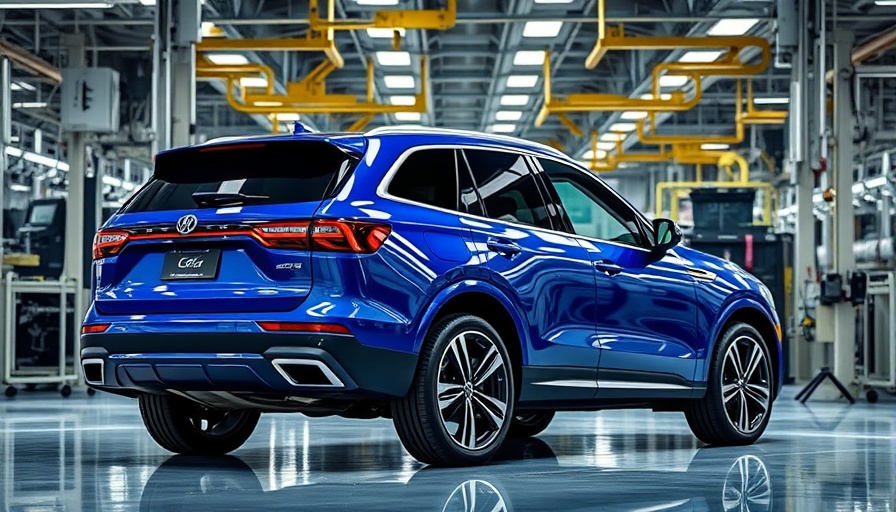
Understanding the Impact of US Tariffs on UK Luxury Car Manufacturing
The auto industry is facing a critical juncture as looming US tariffs threaten to destabilize UK luxury car plants, thus risking layoffs and considerable economic repercussions. With the uncertainty surrounding trade relations between these two major economies, manufacturers are grappling with financial viability and workforce stability.
The Current State of the UK Luxury Car Industry
UK luxury car manufacturers, including iconic brands like Aston Martin, Rolls-Royce, and Bentley, contribute significantly to the country’s exports and economy. As the industry shifts gears toward electric and hybrid vehicles, these brands need to adapt swiftly. However, the introduction of tariffs could curtail their materials supply and elevate production costs, thereby making them less competitive in the US market, which is a vital sales territory.
What Does the Market Say? Insight from Industry Leaders
Industry experts contend that if tariffs are implemented, manufacturers could face substantial losses. A high-ranking spokesperson from one leading luxury auto firm indicated that a tariff could lead to thousands of job layoffs, forcing them to reconsider production strategies. Moreover, adjusting the supply chain to absorb these costs could distract manufacturers from direct investments needed for technological upgrades and sustainable practices.
Cross-Industry Impact: Lessons from the Tech Sector
The tech industry has long faced similar threats from tariffs and trade disputes, particularly regarding manufacturing hubs in Asia. Silicon Valley startups that rely on hardware production understand the balance of risks associated with tariffs all too well. The implementation of tariffs has often resulted in increased prices for consumers and reduced market access to innovative technologies. Luxury car manufacturers are warned against the consequences seen in tech, where market disruption can spiral into loss of consumer trust and diminished brand loyalty.
Mitigating Risks: What's Next for UK Car Makers?
As manufacturers brace for potential tariffs, they are exploring strategic partnerships and alternative supply chains to diminish reliance on any single market, including the US. The industry is looking towards corporate partnerships and new funding strategies to facilitate a pivot towards sustainable manufacturing practices that align with global trends in corporate responsibility and environmental impact.
Future Predictions: Will Tariffs Subside?
Trade regulations are often seen as politically motivated and subject to change with election cycles. Analysts suggest that the luxury car sector must prepare for both short-term disruptions and long-term planning as they navigate the uncertainties of tariff implementation. Moreover, if the US adopts a more protectionist stance, UK manufacturers may need to push for advocacy on a global trade level, seeking to negotiate terms that could allow for continued collaboration rather than isolation.
Call to Action: Engaging in the Conversation
As the world watches these developments unfold, it is crucial for stakeholders in the automotive sector to remain engaged and proactive. Whether through industry forums, local discussions, or direct advocacy with policymakers, the collective voice of the manufacturing industry can help steer the conversation toward more favorable trade negotiations. For those interested in the future of luxury vehicle production and the economic landscape of the UK, staying informed and involved is essential.
 Add Row
Add Row  Add
Add 



Write A Comment